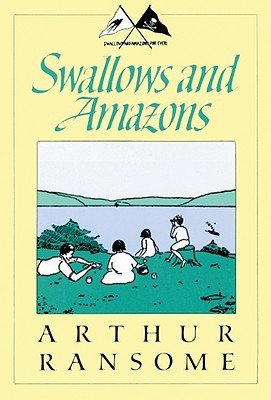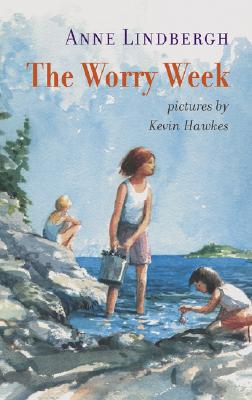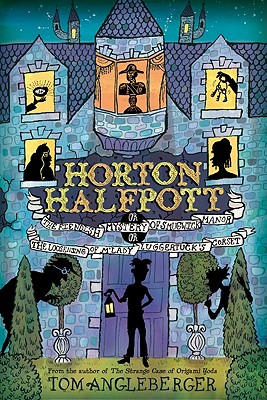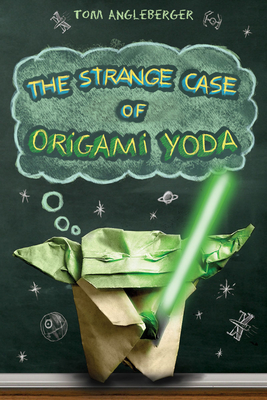 It’s been a while since I’ve brought up the topic of race in children’s books, and I’m eager to hear how you publishers are coming along with your efforts to publish increasingly inclusive lists of books that feature kids of color as main characters in general-interest stories that aren’t primarily driven by issues of race.
It’s been a while since I’ve brought up the topic of race in children’s books, and I’m eager to hear how you publishers are coming along with your efforts to publish increasingly inclusive lists of books that feature kids of color as main characters in general-interest stories that aren’t primarily driven by issues of race.
Stories and nonfiction about racially charged eras and issues of racial identity in our culture are critical, of course. But equally important are mainstream stories—in every genre—that feature kids of color as main characters in a setting that, like most of America, is culturally and racially diverse. Stories about friendship, family, pets, love, character, self-reliance, etcetera, in mysteries, adventures, science fiction and fantasy, for every age child and every type of book, including chapter books, board books, easy readers. We need all of these books, now. Need them deeply and importantly, as my mother would have said.
The good news is that we are seeing more new titles fitting this description in catalogs and rep meetings, and arriving at the Flying Pig in new-release cartons.
For more than a year now, I’ve maintained a multicultural online bibliography on LibraryThing.com, of as many titles fitting the above description (books that feature kids of color as main characters in general-interest stories that aren’t primarily driven by issues of race; kids of color must be depicted on the front cover of the books if there are any characters depicted in the art). These books are sortable by age range, genre, and format, and there are more than 600 titles in the collection so far.
I would LOVE for publishers to send me lists of any 2011 titles that meet the criteria. Kids of color must be featured on the book covers. You can use my email: ebluemle AT publishersweekly.com or mention titles here (just bibliographic info in the comments here; no promo, please). I’ll add them to the list and celebrate you to the skies!
P.S. A heads-up. Soon, I’ll be inviting you to share success stories about increasing diversity within publishing houses. I really, really hope to hear some great news.
Monthly Archives: May 2011
Let’s Start a New Holiday
Josie Leavitt - May 9, 2011
The week of Mother’s Day is always a fun one at the bookstore. There is an increasing panic as Sunday draws near. In the beginning of the week, husbands and fathers come in the store feeling a little self-righteous because they’ve actually planned ahead of time to get their wife a thoughtful gift and their Mom a card in the mail in time to arrive by Mother’s Day.
Then there are the men who come dashing in on Friday and Saturday. They buy whatever card we have left, ask what a “good book for a woman” might be and are thrilled when we offer to wrap. These men are not bad men, they are just busy men who might not always have Mother’s Day on their radar. The kids are usually very helpful in book selection. I must have overheard three conversations where a little kid, usually a girl, spent a long time trying to convince her dad why a princess or fairy book might be just want Mommy would want. “Daddy, she likes to dress up!”
I think most bookstore employees this week worked hard at helping men get the perfect book. Part of our jobs is to make the gift giver look great. We don’t just recommend what’s hot, we ask questions: what does your wife like? does she have any hobbies? any favorite authors? do you two do things together? etc. A thoughtful gift can only work if thought goes into every aspect of the purchase.
I like to envision every Mother’s Day beginning with breakfast in bed. Not a gourmet breakfast, mind you, but the kind a lot of kids make: scrambled eggs with bits of shell, slightly burnt toast and nothing actually hot, except maybe the coffee. Then the gifts come out. Homemade cards, which are adorable from the kids, maybe a gift certificate for a pedicure and a heartfelt card from the husband and then a book that she wants to spend all day reading. And if most families are really thinking about their hard-working moms, they will have let her had the day to just read. Imagine, a whole day to just read guilt-free.
I think we should have Reader’s Day, so all the folks who aren’t mothers or fathers can still have a guilt-free day of reading, just because it’s their day.
A Meeting with David R. Godine
Josie Leavitt - May 6, 2011
I think it’s safe to say that David R. Godine is not like other publishers for a variety of reasons. His books are small print-run gems. The paper, the craftsmanship, the quality and the eclectic catalog, all make for a lovely buying session. What makes it even better for me is that David calls on us himself.
David loves books and that shines through from the moment you start talking about books with him. He is passionate about all his titles, but also honest. Often he’ll say, as I’m lingering over catalog copy, “You don’t need that. Turn the page, this you need. You need three of them.” If I look hesitant, he looks imploring and then he takes out the F&G and goes through it page by page and tells me, not only about the book, the author and the art, bu t about the paper and how good it feels. I spend a lot of my meetings with David rubbing paper between my thumb and forefinger exclaiming, “That paper does feel great.” He also convinced me that I desperately needed to restock Ferdinand the Bull in Latin. I resisted, but it was for naught. David’s argument was compelling, “You just need it.” So, now I have one lovely copy of Ferdinandus Taurus. And I’m sure someone will buy it by the end of the month.
t about the paper and how good it feels. I spend a lot of my meetings with David rubbing paper between my thumb and forefinger exclaiming, “That paper does feel great.” He also convinced me that I desperately needed to restock Ferdinand the Bull in Latin. I resisted, but it was for naught. David’s argument was compelling, “You just need it.” So, now I have one lovely copy of Ferdinandus Taurus. And I’m sure someone will buy it by the end of the month.
I suspect that times are tough for a small publisher of high-quality books. I am always happy to buy Godine books. When we first opened, people judged us as a good or a bad bookstore by how many in the Swallows and Amazons series by Arthur Ransome we carried; we carried them all from day one, we try never to be out. One of my all-time favorite books for summer, The Worry Week by Anne  Morrow Lindbergh, just sets the perfect tone for a summer reading adventure with sisters. Full of humor and real family situations, it’s a lovely book that most customers don’t know about.
Morrow Lindbergh, just sets the perfect tone for a summer reading adventure with sisters. Full of humor and real family situations, it’s a lovely book that most customers don’t know about.
David does one thing that’s so smart: he brings a few seasonal backlist titles to the meeting to refresh your memory. This worked really well for me, as I tend to forget titles. So now, I’m fully stocked in new Godine titles and have a good stash of summer titles that I know I’ll need as the weather gets better.
My favorite part of the meeting was the “Let’s bargain for this book” segment. David pointed to a backlist catalog page and asked how much would I pay for a particular book I had been eyeing. I looked at the list price of $24.95 and rounded it to 50% off, and suggested $12. “Lower!” he implored. I said, “Nine.” I just didn’t want to suggest an insultingly low number. “Lower,” he said again, with a gleam in his eye. I looked at him and said, “Seven fifty.” I felt brave. He slapped his hand on the table and pretty much called me a sucker. “Five dollars.” I looked incredulously at him. He told me the book was newly remaindered and he could afford to sell it for so little. What fun.
I took two and treated him to coffee, but the barista would take none of my “I’ll pay you $3.75 for both.” He just looked at me like I was crazy. I snickered to myself and forked over eight bucks.
The Stars So Far: Yes or No?
Elizabeth Bluemle - May 5, 2011
Last year and the year before, people seemed to appreciate the ShelfTalker posts where I gathered starred reviews from Booklist, The Bulletin of the Center for Children’s Books, the Horn Book, Kirkus, Publishers Weekly, School Library Journal, and VOYA (Voice of Youth Advocates). Recently, I’ve received emails asking for the 2011 Stars So Far list, and thought I would share my dilemma about the list and its purpose, and open it up to you.
I had all but decided not to repeat the project this year, in part because it is incredibly time-consuming to collect, reformat for consistency, double-check, and count all of the starred review titles. (I do have another full-time job.) But then I started receiving requests for it, and thought more deeply about my conflicted feelings about The Stars So Far. I realized that, beyond the time commitment, I have other hesitations, not least of which is the suspicion that, in providing a sort of one-stop-shopping list, I am complicit in an activity that actually contributes to the narrowing of readership to fewer and fewer titles.
As I said in one of last year’s posts, “Starred reviews are excellent guideposts, but they don’t tell the whole story. There are amazing books out there that never receive a starred review but are popular and/or critical favorites nonetheless.”
When starred reviews become a primary source for book orders, a lot of worthy books can get left in the dust. Often, these are solid “midlist” titles, the kind that make wonderful meals for kids but may not have that extra hook or flash or literary pedigree to grab the eye of a reviewer. I’ve also wondered if starred reviews influence other review publications’ stars, and even have the potential to sway award committees.
Last year, the final tally of starred reviews reached something around 500 titles. For librarians and teachers, this is already far beyond an affordable number of books to add to a collection. As a book buyer myself, I can see the temptation of using a convenient starred review list to corroborate purchasing decisions. Of course, such a list is no substitute for seeing a whole publishing season’s offerings, knowing your local customer base, hearing rep opinions, and being open to serendipity. I know that buyers aren’t using the Stars So Far list as a replacement for these other methods, but I wonder how much of an effect starred reviews do have on buying decisions. We sometimes forget that a star is awarded by a single person—the reviewer (although, in most cases, the editor of the review publication also must confirm the star). Reviewers and editors take great care assigning stars, but each starred review still comes down to taste. Because of this subjectivity, I think starred reviews might carry more perceived weight than they actually merit.
It’s hard enough for writers — especially debut and less established authors — to get their books noticed. There is something wrong with the system when even a successful, longtime author feels like a failure because he or she has never received a starred review. (I can’t tell you how many times I’ve heard authors confess they feel this way.) I don’t think the sense of failure comes so much from typical writerly neurosis, than the recognition of a hard truth: that with all the noise around us, all the information coming at us from all directions, the thousands of books published each year, it gets harder and harder for a book to be seen and heard without a massive promotional effort or critical attention. To a certain extent, the starred review list seems to play into this problem.
I’m listening for your thoughts pro and con, as I try to decide whether or not to resurrect The Stars So Far. What say you?
A Tough Day for Titles
Josie Leavitt - May 3, 2011
Sunday was a lovely day. The sun was out, it was warm, and customers were very happy to be in the store. There were a lot of browsers who were content to amble about the shelves. Then there were the customers who knew what they wanted, but had no idea what it actually was.
The first book seeker was a woman, new to the store, who was looking for a book that began with T. I asked for more details. She had the good grace to chortle at the absurdity for this very vague request. She added, “It’s a new show on HBO.” So I zip the HBO website and she didn’t recognize any of the show titles. Then suddenly she said,”It’s got throne in the title.” Okay, now we’re talking. I went immediately to show her the new Rick Riordan cover on books in print. She just wasn’t sure. I asked if she had a lifeline she could call. Well, two minutes later she comes back with a title: Game of Thrones. Well, alright! We had that book, and she ordered all the rest in the series. She left with our newsletter and a big smile on her face.
The second query was not so easy and it came from an earnest boy of about nine: “Do you have books with wizards’ spells?” I looked at my wizard shelf and we had surprisingly little in stock. I showed him Wizardology, no that wasn’t right. “It a book called Wizard. Why can’t you find it?” I told him there were over 5,000 books with wizard in the title. He said with the sincerity only a child can have, “Can I look at the covers?” Um, not so much. He then explained, in excruciating detail, every aspect of the cover. I failed him, utterly. The fact that there was a wizard with a green robe on the cover did not ring any bells loud enough for me to help him find the book. His dad mentioned that his friend owned the book and I suggested calling, but for reason, this young man didn’t feel like it. So, he left disappointed and I was perplexed.
In between helping him find his spell book and answering the phone, a woman, I believe the wizard’s mother, asked for help. I was happy for what I hoped was an easy distraction. She said she was looking for a new-ish book about a dead mother. It was all could do not to scream right on the sales floor. I asked if she could tell me more about it. “No.” Why is it customers often just assume that their book request will just leap to our mind automatically? There are so many books with dead mothers, I didn’t even know where to begin. I asked my usual leading questions, where did you hear about the book? She didn’t remember. Could she think of anything in the title? No. Author? No. Why is it customers looking for books they can’t remember so often treat you like you can’t speak English? and they just repeat their query again, but louder?
There was nothing I could do, but pretend to type like I knew what I was looking for, when in actuality I was checking my email. I know when a battle is lost, and I told her to call me when she got more info; I’d love to order the book for her. I’m still waiting for the phone to ring.
Tom Angleberger, Or, The Skype Visit That Was(n’t); Or, Placating the Hordes
Elizabeth Bluemle - May 2, 2011
What do you have when an author visit gets thwarted by 1) a second-story fall, 2) surgery to fix the resulting badly broken leg, precluding travel, and 3) unreliable wireless service? You have our Sunday event with intrepid author Tom Angleberger, creative genius behind The Strange Case of Origami Yoda and his new Horton Halfpott: Or, the Fiendish Mystery of Smugwick Manor; Or, the Loosening of M’Lady Luggertuck’s Corset.
When we heard the distressing news about Tom’s accident, we considered simply rescheduling the event for this fall, but then Abrams publicist Laura Mihalick suggested a Skype visit instead, and we thought it was an interesting idea. We’ve never done a Skype visit with an author; how 20th-century of us! It was high time. Laura and Tom also arranged to have bookplates (complete with cute drawings) sent ahead of time.
 So what do indie booksellers do in a situation like this? First, to alert our customers to the change, we sent out an email blast to our mailing list and made a new printed events flyer. However, somehow, we either neglected to alter our website listing or the change didn’t “take” (our web tool has changed platforms and I am not quite up to speed on the new system, so I like to think I did at least TRY to change it…). At any rate, it didn’t appear, which we found out when one of the event attendees mentioned it afterward. Whoops. We did figure that most of the kids who showed up would not have gotten the message that Tom wouldn’t be there, and hoped the Skyping and bookplates and new novel would assuage their author hunger enough to last them until he is able to visit in person.
So what do indie booksellers do in a situation like this? First, to alert our customers to the change, we sent out an email blast to our mailing list and made a new printed events flyer. However, somehow, we either neglected to alter our website listing or the change didn’t “take” (our web tool has changed platforms and I am not quite up to speed on the new system, so I like to think I did at least TRY to change it…). At any rate, it didn’t appear, which we found out when one of the event attendees mentioned it afterward. Whoops. We did figure that most of the kids who showed up would not have gotten the message that Tom wouldn’t be there, and hoped the Skyping and bookplates and new novel would assuage their author hunger enough to last them until he is able to visit in person.Then, we did a test run the day before the event. Worked like a charm! Clear visuals, good sound. All was well. At least, we thought so — until Saturday morning, when we gathered all of the guests—who absorbed the news of Tom’s absence with gracious aplomb—only to encounter Skype malfunctions of the worst kind. Dropped calls, missing video, 11-year-olds enthusiastically offering misguided technical advice (“Press THIS button!” “No, that one!” Click. Dial tone. Lost call. Lather, rinse, repeat.) This went on for a Keystone Kops-esque 20 minutes or so, moments of hope followed by minutes of despair. While Josie valiantly fiddled with the laptop, I affixed bookplates in the kids’ copies of Origami Yoda and Horton Halfpott and helped them tape their little origami Yodas.
 We felt terrible not being able to get the video functioning. The kids were SO terrific! They weren’t mad, but they were a little disappointed, naturally. Really, they could have complained and whined, but instead took the delays and disappointment in stride, trusting that Tom would visit in the future and they would get to meet him someday.
We felt terrible not being able to get the video functioning. The kids were SO terrific! They weren’t mad, but they were a little disappointed, naturally. Really, they could have complained and whined, but instead took the delays and disappointment in stride, trusting that Tom would visit in the future and they would get to meet him someday.We offered the families 20% off downstairs in the store, which they appreciated. We also invited them to sign up on the email list if they hadn’t already, to make sure they always have the most up-t0-date event info. So families started trickling down to browse for books or get on with their Saturday.
And then patient Tom came out with a most generous offer (sent via email, since Skype had flaked altogether by then): he asked for the kids’ names so he could send them personalized drawings of Darth Paper! I ran downstairs to collect as many names as I could. You should have heard the excited gasps and seen the won-the-lottery grins on the faces of the kids who received that news. We missed some families who had already left, but lots of participants will be receiving small personal treasures from a quick-thinking, talented, generous author and artist — and really, along with the books, what more could a kid really want?
All’s well that ends well. I’m pretty sure we didn’t lose any customers, and we actually had two families new to the store thank us for our handling of the event and tell us they’d be back. It’s pretty gratifying when you can NOT present a promised author to an expectant group and somehow turn it around. As event disasters go, this one was made tolerable by all parties—guests, booksellers, and most especially a wonderful author—making the very best of an unfortunate situation.
Anyone else got disaster stories to share? And tips for salvaging them?

